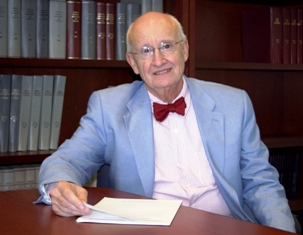
Kenneth M Heilman, MD
Editor-in-Chief
University of Florida College of Medicine and GRECC-VAMC, The James E. Rooks Jr. Distinguished Professor of Neurology, Gainesville, USA
Dr. Kenneth M. Heilman received his M.D. degree from the University of Virginia in 1963. He was a PGY 1&2 in internal medicine at Cornell University Medical Center-Bellevue Hospital (1963-65). During the Vietnam War he joined the Air Force and was Chief of Medicine at NATO Hospital, Izmir, Turkey (1965-1967). After his service, he took a Neurology residency and fellowship at the Harvard Neurological Unit of Boston City (1967-1970), first with Dr. Denny-Brown and then with Dr. Norman Geschwind. In 1970 he joined the faculty at the University of Florida as an Assistant Professor, was promoted to Associate Professor in 1973 and Professor in 1975. He received the James E Rooks, Jr. endowed professorship in 1990 and in 1998 was promoted to a Distinguished Professor. In 1977, Dr. Heilman joined the VA faculty, in a part time status, first as a Staff Neurologist and then between 1996 and 2009 as Chief of the Neurology Service. At the VA he is currently a member of the GRECC. Heilman is a clinician, educator and investigator. His expertise as a clinician has been recognized by being listed in multiple editions of the Best Doctors in America, America’s Top Doctors and Who’s Who. In addition to teaching students (medical and psychology), and resident physicians he is director of a Behavioral Neurology-Dementia Post-Doctoral program. This program has trained more than 70 post-doctoral fellows, the majority of who hold academic positions and several of whom are now leaders in academic neurology, neuropsychology and cognitive neuroscience. Most of Heilman’s research is neurobehavioral, examining brain behavior relationships in health and disease. He is the author or co-author or editor or co-editor of 14 published or ‘in press’ books and more than 500 peer reviewed publications. He has received and continues to receive federal funding (NIH or VA) for about 40 years. He and his coworkers have described several new diseases/disorders and their treatment (e.g., orthostatic tremor). He has demonstrated that right hemisphere injury causes disorders of emotional communication (impaired emotional prosody and facial expressions), as well as defects of sensory attention, action-intention (spatial neglect) and self-awareness (anosognosia). He has helped to better understand disorders of purposeful skilled movements (apraxia) as well as other neurobehavioral disorders such as amnesia, aphasia, agraphia and alexia. Dr. Heilman is a member of many honorary organizations such as Alpha Omega Alpha, Sigma Xi and the Dana Foundation. He has received two Research Foundation Professorships, the Clinical Research Award, and the Lifetime Achievement Award from the University of Florida, College of Medicine. He is a past President of the International Neuropsychology Society (INS) and the Society for Cognitive and Behavioral Neurology (SCBN) and in 2012 they give him their first Lifetime Achievement Award. The INS gave him their “Distinguished Career Award,” SCBN gave him the “Outstanding Achievement Award, ” and the American Speech and Hearing Association (ASHA) give him their “Distinguished Service Award” for his scientific and educational contributions. He was elected to be an Honorary Member of the American Neurological Association, and is a Fellow in the American Academy of Neurology (AAN). In 2009 the AAN gave him the Wartenberg Lecture Award and he presented the Wartenberg Lecture at the 2009 meeting of the AAN. . His greatest honor, however, has been being married to Patricia, having three wonderful children and three grandchildren.
Dr. Heilman’s research is neurobehavioral, examining brain behavior relationships in health and disease. He is the author or co-author or editor or co-editor of 14 published or ‘in press’ books and more than 500 peer reviewed publications. He has received and continues to receive federal funding (NIH or VA) for about 40 years. He and his coworkers have described several new diseases/disorders and their treatment (e.g., orthostatic tremor). He has demonstrated that right hemisphere injury causes disorders of emotional communication (impaired emotional prosody and facial expressions), as well as defects of sensory attention, action-intention (spatial neglect) and self-awareness (anosognosia). He has helped to better understand disorders of purposeful skilled movements (apraxia) as well as other neurobehavioral disorders such as amnesia, aphasia, agraphia and alexia.
Neurological Disorders received 1343 citations as per Google Scholar report